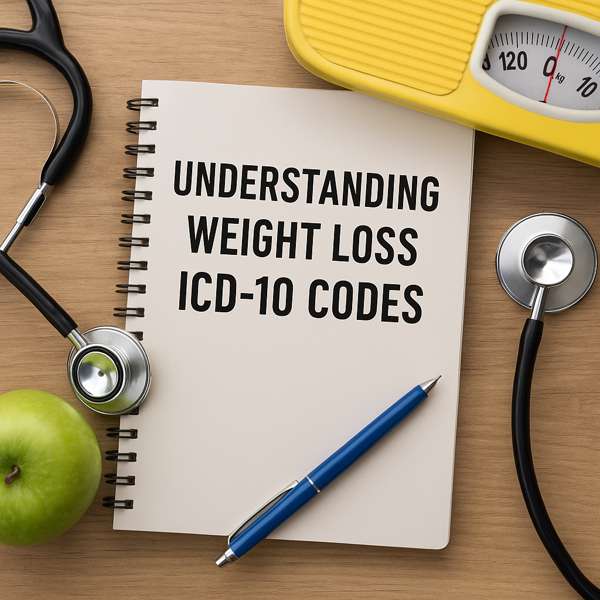ICD-10 Codes for Weight Loss
ICD-10 Codes for Weight Loss
Blog Article

In the world of healthcare, accurate coding is essential — especially when it comes to documenting weight loss.
In this article, we’ll break down what ICD-10 codes are used for weight loss, how to apply them, and what you should know for accurate recordkeeping.
Understanding ICD-10 for Weight Loss
ICD-10 stands for the International Classification of Diseases, 10th Revision.
Each diagnosis is assigned a unique code, which is used for:
- Submitting claims to health providers
- Tracking public health trends
- Communicating diagnoses between professionals
Top Codes Used for Documenting Weight Loss
Choosing the correct code depends on the cause, severity, and context of the weight loss.
Key codes include:
- R63.4 – Abnormal Weight Loss
This code applies when a patient loses a significant amount of weight without trying, often due to illness.
- Used when weight loss is guided by professional support
Often applied in cases involving nutritional intervention or guidance.
- Indicates poor nutrition or unhealthy patterns impacting weight
- E66.9 – Obesity, Unspecified
- E43 – Unspecified Severe Protein-Calorie Malnutrition
Clinical Use of R63.4
R63.4 hair loss icd-10 is the most commonly used ICD-10 code for weight loss, but it must be applied correctly.
- There is no intentional diet or fitness program involved
- Weight loss is a primary symptom in evaluation
- Used as part of diagnostic workup
Tips for Correct ICD-10 Weight Loss Usage
To avoid claim denials or coding errors:
- Always specify if weight loss is intentional or not
- Document related symptoms or conditions
- Support your claim with a full picture
- Avoid using obesity and weight loss codes together unless clinically justified
Coding for Counseling and Support Services
If you’re coding for a structured weight loss program or health coaching, consider using these Z-codes:
- Z71.3 – Dietary Counseling
- Z76.89 – Person Encountering Health Services for Other Reasons
- Used in early evaluation settings
These codes can support insurance claims for wellness, prevention, and obesity treatment plans.
Final Thoughts on Weight Loss ICD-10 Codes
Using the right ICD-10 code for weight loss is fundamental for clear documentation and proper billing.
To summarize:
- R63.4 = Unintentional weight loss
- Great for structured programs
- E-codes = Nutritional or medical malnutrition
When in doubt, document fully and consult with a certified coding professional. Report this page